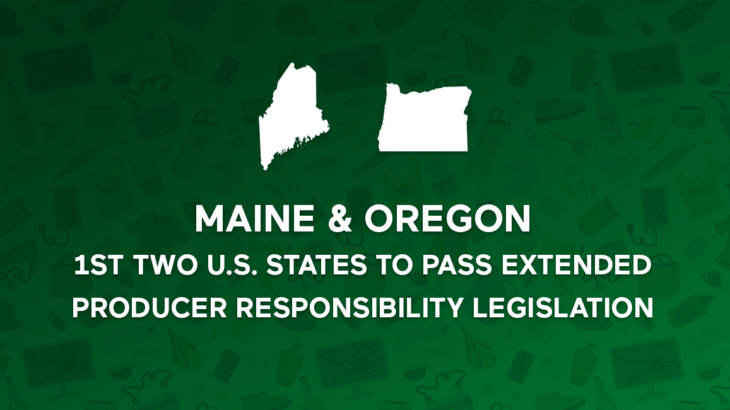
Maine and Oregon Become the First U.S. States to Pass Extended Producer Responsibility Legislation
Traditionally, consumers have largely incurred the cost of disposal for the end-of-life of products, whether through a landfill, incinerate or recycle, or through municipal trash and recycling fees. Product Stewardship, also called Extended Producer Responsibility (EPR), shifts some of that post-consumer product management expense to companies manufacturing consumer goods, based on variables such as collection cost and recyclability of their products.
In the U.S., some examples of products already utilizing this waste management strategy (shared responsibility for disposal costs among brand owners, supply chains, manufacturers, and consumers) include paint, carpet, mattresses, electronic waste, and mercury containing products.
This summer, Maine and Oregon became the first two U.S. states to pass EPR legislation for packaging producer responsibility. In hopes of improving recycling rates and reducing waste, several other states are considering similar legislation. For a refresher on the outlook of New England’s dire landfill capacity status and the urgency to reduce trash tonnage, see EBC Eighth Annual New England “Talking Trash” Conference .
Lastly, in addition to imposing fees on producers, EPR legislation encourages product design change toward minimizing environmental impacts and supporting sustainable materials management. Read Waste Management’s current position on EPR here.






